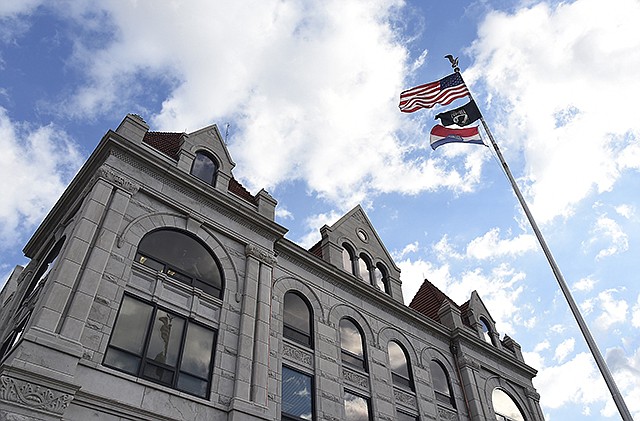Having to pay overtime is expected when running emergency service operations such as the Cole County Sheriff's Department and Cole County Ambulance Service (EMS).
But with increasing costs to operate those services, elected officials and department heads are looking at ways to cut overtime hours as much as possible.
Both the sheriff's department and ambulance service are requesting less in 2018 overtime budgets than for 2017. Both offices have hired additional staff over the last year; and while it won't happen next year, both Sheriff John Wheeler and Ambulance Director Jerry Johnston want to add more staff in the future.
The ambulance service is requesting $296,010 for its 2018 overtime budget. The County Commission initially budgeted $450,000 for overtime in 2017, but later amended that to $454,891.
Through the end of August, the service has used $258,930 for overtime and is projected to end the year at $386,906. The 2016 total for EMS overtime was $446,817.
"Nationally, there is a shortage of paramedics, and we're no different," Johnston said. "The lack of paramedics is our primary issue with overtime. We've been reaching out as far as a 100-mile radius to try and get new paramedics to come here."
Johnston said it takes eight to nine months for an EMT to train to become a paramedic. They offer scholarships to staff members working to get that training, and two scholarships are in the ambulance proposed 2018 budget.
The Cole County Commission is looking at a proposal from Johnston, County Auditor Kristin Berhorst and County Financial Officer Debbie Malzner to develop a part-time pay scale for paramedics.
Johnston said he initially believed it wasn't a pay issue, just a trend of few part-time paramedics wanting to get into the field on a full-time basis. He likened it to what was seen a decade or so ago when there was a nationwide shortage in nurses with the hope the trend would change in the next few years.
Western District Commissioner Kris Scheperle said he believed it was a matter of pay and the scale could be the solution.
"If they're hungry and want to work every shift that is available, I'd be willing to pay them more, maybe more than what full-time would get," Scheperle said. "If you pay a part-time person $20 an hour for their regular shifts, I'd rather pay them to work more shift hours than having to pay them $30 an hour for overtime."
Part-time paramedics still would not receive benefits. Both part-time and full-time paramedics start at $17.28 an hour.
Johnston said they currently have 10 part-time paramedics. Once a full-time position opens, the part-timers usually move into those jobs.
For the Sheriff's Department, the total overtime budget request for 2018 is $164,000. This includes the jail and other divisions. The department's initial 2017 overtime budget was $188,000, but an amended budget decreased that amount to $173,000.
Through the end of August, the Sheriff's Department has used $109,331 in overtime. In 2016 the total sheriff's department overtime was $155,608.
During the first six months of the year, Wheeler said, the Sheriff's Department jail staff began working 12-hour shifts, allowing them to cut down on overtime and part-time hours.
Eventually, commissioners agreed to move two current jail personnel to sergeant and corporal positions and hire two new jailers. Wheeler said he wouldn't request new personnel in the 2018 budget and noted his department has generated enough revenue to cover the costs - $48,000 for the sergeant and corporal positions.
"Everyone agrees that with the savings in overtime and part-time, these two positions would be budget-neutral for 2017," Wheeler said. "In other words, we could bring these two positions on in 2017 without any additional funds."
Wheeler noted the department budgeted revenue of $875,000 for federal prisoners in 2017. The revenue line for federal prisoners this year is $501,600.
"If you annualize what we have now in revenue, we will be at $1.2 million for the year," he said. "This does not include any more overtime or part-time we would be able to save throughout the year. This more than makes up for the $48,000. In fact, on our current trend, we will increase our revenue by over $300,000 for the year."
In July 2011, the jail had a daily average of around 115 inmates. In May 2017, the daily average was around 130.
When the jail opened in 2011, there were 33 full-time jail staffers, including transport staff and two part-timers. Now there are 38 full-time jail staff members including transports. The jail has 10 part-time employees including transports.
The department spent $66,103 in overtime for the jail operations in 2016. Through the end of August, the department had used $41,479.

